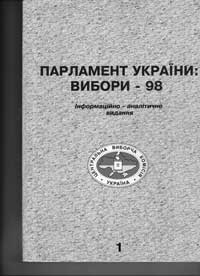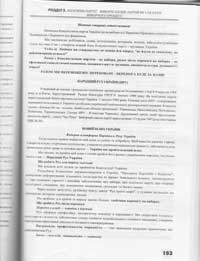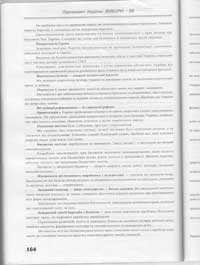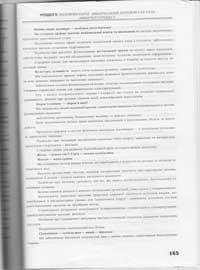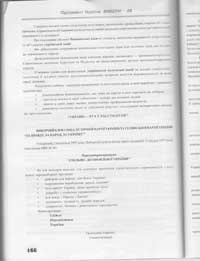NATO and Ukraine’s Politicians: Time for Political Accountability
The phenomenon of politicians making one claim to the voters before an election and then behaving in a completely different way once safely in office is a problem sadly common to all democracies. Whether in a well-established republic such as the United States or in a relatively new one like Ukraine, parties and politicians must be subject to constant and close scrutiny by press and people, and by their political opponents, for the gap between what they say and what they do – and what they are likely to do.
Nowhere is the demand for scrutiny more urgent than on questions relating to war and peace and to national security. In the U.S. presidential election of 1916, Democrat Woodrow Wilson was narrowly returned to office over Republican Charles Evans Hughes largely on the strength of the highly popular campaign slogan, “He kept us out of war.” With the American public appalled at the prospect of joining the horrendous carnage then claiming a generation of European youth, Wilson was able to caricature Hughes’s advocacy of stronger military preparedness as a pro-war position. However, once returned to the White House, Wilson continued on a course tilted in favor of Britain and almost certain to result in America’s inability to maintain what became a purely formal neutrality.
While no one suggests that Ukraine’s prospect of NATO entry is of immediate gravity comparable to U.S. entry into what was known for a time as “The War to End All Wars,” its importance to both Ukraine and the Untied States should not be taken lightly. While often alluded-to as a general part of Ukraine’s “Euro-Atlantic orientation,” NATO is a military alliance, membership in which cannot be separated from fundamental questions of power relationships that in a moment of future crisis could assume grave and unforeseen proportions. Accordingly, not just the voters of Ukraine but the citizens of other NATO countries, including the United States, have not only a right but an obligation to demand of politicians an honest disclosure of their intentions.
Elections and Media in Ukraine
Ukraine is a young and still far from consolidated democracy. The country has held three elections declared to be “free and fair” by international organizations, such as the Organization for Security and Cooperation in Europe and the Council of Europe. One elevated Viktor Yushchenko to the presidency (December 2004) and two others were won by the Party of Regions (March 2006 and September 2007). Ukraine also has a pluralistic and lively media.
These two factors – free elections and pluralistic media – go some of the way towards providing building blocks for a democracy. But, they only take Ukraine so far down this important road. What is essential for any democracy is interaction between voters (“citizens”) and politicians, whether through political parties or officials. In essence, this interaction in a consolidated democracy amounts to a “contract” between the people’s representatives and voters. Civil society and the media play an essential role in facilitating this interaction; after all most voters never see their politicians except through the media.
Central to this “contract” between voters and political representatives is the accountability of elected officials to those who have put them into office. Politicians, whether elected to parliaments or elected as presidents of a country, hold an important responsibility to those who have elected them, towards their political party and a higher duty to the national interest. To be sure, this rests first of all on the honesty and integrity of the individuals involved but extends beyond the personal sphere into the civic and social.
Without accountability and responsibility of elected officials democracies become facades or, in the terminology of political science, merely “electoral democracies.” That is, politicians only take heed of voters during election campaigns while ignoring them between elections. In “electoral democracies” the programs of parties or presidential candidates are ignored after they come into office. Politicians who feel no need to be accountable to voters, take no interest in public opinion, as seen through opinion polls, and who do not fear criminal charges because the rule of law is corrupted will be contemptuous of voters, cynical in their disposition, and uninterested in fulfilling their election pledges.
Ukraine’s Politicians and Foreign Policy Programs
The divergence between what Ukraine’s politicians represent in their programs during elections and what they actually stand for is most observable in foreign and security policies. All too often it appears that Ukraine’s politicians are hesitant to be completely candid with voters by laying out their true intentions for after they come to power.
On perhaps the most important such questions, over the last two decades of Ukraine as an independent state not a single election platform of any of Ukraine’s political party or presidential candidate has ever declared NATO membership to be its or his/her goal (see Appendix). Consequently, the fact that some politicians have moved towards support for NATO membership after they have come to office has therefore been undertaken without any mandate from voters.
At its June 2009 meeting the Ukraine-NATO Civic League, a pro-NATO membership advocacy group, expressed its frustration at the fact that Ukraine’s politicians duck the issue of NATO out of a fear that raising it would harm their popularity. The League plans to therefore analyze the programs of all presidential candidates in the January 2010 elections on the issue of NATO membership. While AIU’s perspective on the issue of Ukraine’s NATO accession differs from that of the Civic League, AIU fully agrees with their assessment of politicians’ behavior.
Presidential Candidates
Running for a second term in the 1999 presidential elections Leonid Kuchma outlined his support for a foreign policy that was “pro-Ukrainian.” In addition, Kuchma supported Ukraine’s “non-bloc status and stable partnership with all the democratic countries of the world.” NATO is never mentioned; instead, Kuchma’s re-election platform supports the “building of an effective system of European security and harmonization of national legislation in conformity with world and European standards . . . ” The only country singled out as a “strategic partner” of Ukraine is Russia. Kuchma’s opponents in the 1999 presidential elections opposed Ukraine joining NATO and focused their intention on integration with Russia and the CIS.
The 2004 presidential elections were fought between two main candidates: Viktor Yushchenko and Viktor Yanukovych. During the campaign, Western media portrayed the former as “pro-Western” and the latter as “pro-Russian.” But nothing referring to NATO in the election platforms of either supported such a conclusion, which evidently depended on other factors. The “Orange” coalition that came to power in January 2005 with Yushchenko’s inauguration, and in March 2006, when three “Orange” political forces (Our Ukraine, Yulia Tymoshenko bloc [YTB] and the Socialist Party) formed a government was never united on the issue of NATO membership. The Socialists, who supported Yushchenko in the second and repeat second round of the 2004 elections, have always opposed NATO membership. The YTB has also been lukewarm and, some might speculate, opportunistic on the question.
In Yushchenko’s “Ten Steps Towards People” program, which was presented to the Central Election Commission in July 2004, foreign and security policy is only discussed in “Step 10” – the bottom of the list. Under the title “To Undertake Foreign Policy In the Interests of the Ukrainian People” it reflects the ideological amorphousness of Yushchenko’s foreign policy program and in that sense is reminiscent of Kuchma’s 1999 program of seeking to pursue a “pro-Ukrainian” foreign policy. (Indeed, one is tempted to wonder why any president of Ukraine would pursue anything but a “pro-Ukrainian” foreign policy.)
Yushchenko’s 2004 program never mentions NATO or even the EU in any context. Instead, Ukraine’s foreign policy will be, Yushchenko declares, “honest, transparent and consistent, and economically beneficial.” He outlines the importance of foreign investment, the need for Ukraine to maintain its international responsibilities while at the same time defending its national interests. The only countries mentioned in Yushchenko’s “Ten Steps” and his 14 draft decrees, issued later that year in the fall, are Russia and Belarus. The “pro-American” presidential candidate does not declare the U.S. to be a “strategic partner” of Ukraine.
That Yushchenko side-stepped the issue of NATO in his 2004 election program can lead to only one conclusion: following his assumption of office he had no mandate from voters to pursue the issue of Ukraine seeking NATO membership. Ukraine’s voters were never consulted by the president as to whether they agreed with this post-election day shift towards his stridently pro-NATO stance. The level of public support for NATO membership in Ukraine has remained stable throughout Yushchenko’s presidency at no more than 20-25%, not rising in proportion to Yushchenko’s pro-NATO policies.
Yanukovych’s 2004 election program – not surprisingly – does not mention NATO but goes further than Yushchenko in stating Ukraine’s participation in regional and integration processes and “advancing Ukraine’s euro-integration.” His program on foreign policy is little different from that of Yushchenko’s, belying Western media claims of the two main candidates being either “pro-Western” or “pro-Russian.” Both candidates single out only Russia as Ukraine’s “strategic partner.”
Yanukovych was more honest than Yushchenko in his 2004 election program. After all, in July 2002 President Kuchma had outlined Ukraine’s strategy of seeking NATO membership and this had remained official policy during the November 2002-January 2005 government headed by Prime Minister Yanukovych. Under the 1996 constitution then in place the government came under the jurisdiction of the president. Yanukovych therefore – unlike Yushchenko – spoke of Ukraine’s “euro-integration” while diplomatically not mentioning NATO.
Political Parties and Election Blocs: Center-Left
The March 1998 parliamentary elections de facto launched Ukraine’s multi-party system. The center-left fought the elections in the “For Truth, For the People, For Ukraine!” bloc while the Communist and Progressive Socialist Parties took part individually. The three programs were little different and incorporated a strong emphasis on close relations with Russia, support for integration into the CIS, and opposition to NATO membership.
Pro-presidential centrist parties, such as the People’s Democratic Party (PDP), traditionally have supported a multi-vector foreign policy for Ukraine. In the 1998 elections, the PDP supported multi-vectorism, desiring both good relations with Russia while at the same time participating in NATO’s emerging collective security system. The PDP side-stepped the contradiction of how one vector (good relations with Russia) could be undermined by the other (NATO membership).
The Ukraine’s Popular Movement (Rukh) neglected to mention NATO in any manner. Instead, Rukh merely called for Ukraine’s integration into Europe. Rukh became one of the major political parties in Yushchenko’s “Our Ukraine” created three years later.
In the March 2002 parliamentary elections the pro-presidential “For a United Ukraine” (FUU) election bloc brought together five centrist parties, including the Party of Regions. FUU described Ukraine as a “European country” but never mentioned NATO or even the EU. And yet, only two months after the elections, President Kuchma declared Ukraine’s intention of seeking NATO membership, which was codified in a July decree, a foreign policy step that had no mandate from Ukraine’s voters who were presented with the FUU program that did not address NATO in March of that year.
FUU’s 2002 program supported Ukraine as a “center of regional economic integration.” As has become standard practice, the only country mentioned in the program was Russia with whom Ukraine should develop all-round relations. Two years after the 9/11 terrorist attacks, the program supported Ukraine’s “participation in the international coalition’s struggle against terrorism.” President Kuchma and the “pro-Russian” Yanukovych government sent the third largest military contingent to support U.S.-led coalition forces in Iraq in 2003 which the “pro-Western” President Yushchenko withdrew two years later.
Another pro-presidential political force in the 2002 elections, the Social Democratic United Party (SDUP), described its foreign policy goals as strengthening Ukraine’s sovereignty and Ukraine’s active participation in international affairs, including joining international and European organizations. Russia is singled out by the SDUP for good relations based on equal partnership and mutually beneficial ties. The SDUP supported the creation of an all-European collective security system with the participation of Western, Central and Eastern Europe, and Russia.
Political Parties and Election Blocs: Opposition
The opposition platforms on foreign and security policy in the 2002 elections did not radically differ from those outlined by blocs and parties that were pro-presidential. None of the opposition forces mentioned NATO in their election programs.
“Our Ukraine,” established by Yushchenko as an election bloc of ten center-right political parties, first used the term “Ten Steps” that was repeated two years later in Yushchenko’s presidential campaign program. Judging by the ideological stance of the national democratic and nationalist parties in Our Ukraine this should have been the most staunchly pro-NATO political force in the 2002 elections. But, this was not to be. Our Ukraine’s foreign policy was as nebulous as other political parties in the 2002 elections. It described the need to “support the development of new regional structures to ensure cooperation with our neighbors.” Membership in the World Trade Organization is mentioned but not NATO. Beyond this all that is laid out in Our Ukraine’s program is the need for Ukraine to adopt “European ecological standards” and to “ensure close cooperation with the Ukraine’s diaspora and create in the world a united and influential Ukraine’s community.”
Our Ukraine’s 2006 election program is also devoid of any reference to NATO. The program outlines priorities such as ensuring the fulfillment of the political and economic interests of the Ukraine’s state and encouraging foreign investment. Our Ukraine outlined the goal of Ukraine’s foreign policy as “integration into European structures” and achieving the status of Associate Member of the EU within a “maximum short period of time.” Membership of the World Trade Organization is also mentioned as a goal, but not NATO.
The election program of Our Ukraine-People’s Self Defence in the September 2007 pre-term elections is the most nebulous of Our Ukraine’s foreign policy platforms. The program is the first Our Ukraine program devoid of any foreign policy section. A small number of foreign policy issues are instead included within Section 3 (“Ensure Ukraine’s Competitiveness and Defense of Private Property”). The 2007 program outlines goals of World Trade Organization membership, and the creation of a free trade zone and visa free regime with the EU. The program has again no mention of NATO in any form whatsoever.
Political Parties and Election Blocs: YTB
In the 2002 elections the Yulia Tymoshenko bloc (YTB) had a nebulous foreign policy that claimed YTB would clearly define Ukraine’s national interests and conduct a foreign policy “in the interests of one’s own nation” based on foreign relationships that were built on equality. YTB outlined two strategic assets of Ukraine: “the nation’s intellect and information resources” and the “transit possibilities” afforded by Ukraine. YTB never mentions NATO or even the EU. YTB’s 2006 and 2007 election program’s are little different in their ideological amorphousness. In 2006 YTB again stressed the need to clearly define Ukraine’s national interests: “Foreign policy will be undertaken in the name of one’s nation on the basis of peaceful, equal, mutually beneficial economic relations with all states with whom Ukraine has joint interests.” YTB’s 2007 election program repeats exactly the same imprecise phrase.
YTB apparently has put little thought into their foreign policy program and borrowed the same phrases in both the 2006 and 2007 elections. YTB obviously felt it unimportant to develop a new foreign policy to reflect the election of the allegedly “pro-Western” President Yushchenko.
No Mandate, But Forward to NATO Anyway
In January 2008 President Yushchenko, Prime Minister Tymoshenko and Parliamentary Speaker Arseniy Yatseniuk sent an open letter to NATO requesting that it consider Ukraine for a Membership Action Plan (MAP) at its April 2008 summit in Bucharest. Yushchenko’s 2004 election program, YTB and Our Ukraine-People’s Self Defense (the bloc within which Yatseniuk was elected) 2007 programs do not mention NATO and none of the three leaders could plausibly claim any mandate from the voters to pursue such a goal.
At Bucharest, the Alliance stated its commitment that Ukraine (and Georgia) would join NATO at some unspecified future date, but no MAP was offered. At the April 2009 Strasbourg-Kehl summit, not only was no MAP offered, no further mention was made of Ukraine’s (and Georgia’s) presumed future accession . Still, the current authorities in Kiev continue to act as though Ukraine had decided in favor of NATO and they were authorized to deal with Brussels (and Washington) accordingly.
For example, in June 2009, Ministry of Foreign Affairs spokesman Vasyl Kyrylych announced that NATO had positively assessed the draft annual national program of Ukraine on cooperation with the Alliance. Noting that NATO released its assessment of the draft document during a meeting of the NATO-Ukraine Commission in Brussels on June 15, Kyrylych commented: “There are all grounds to say NATO has given its positive assessment of the draft annual national program as an instrument of preparing Ukraine for joining NATO.” The Foreign Ministry further indicated the program was a step toward MAP. What Kyrylych did not indicate was from where the government derived the moral, or even the legal, right to be settling on any “instrument of preparing Ukraine for joining NATO” in the first place.
The importance of the NATO-Ukraine Commission should not be underestimated. The fact that this is a functional equivalent for MAP should be abundantly clear. The 7th Annual Target Plan for 2009 – signed by both the Commission and President Yushchenko -- sets targets and activities in different areas including “internal political issues, foreign and security policy, defence and security sector reform, public information, economic and legal issues, and information security.” Of special note should be the “public information” component. In the summary we find this item, on which Ukraine agrees to focus per Yushchenko’s signature:
“Ensuring the funding and implementation of the State Programme of Public Information on Euro-Atlantic Integration of Ukraine for 2008-2011, with a view to spreading unbiased information on the Alliance, increasing public awareness on NATO’s role and its activities, as well as enhancing public support for Ukraine’s Euro-Atlantic course in an effective and coordinated manner.”
It would be extremely naive to believe that reference to Ukraine’s “Euro-Atlantic course” in a NATO document means anything but NATO membership. Nor should one think that “spreading unbiased information” means a balanced commitment to disseminate criticism of NATO along with positive views of NATO. How can “enhancing public support” be compatible with “unbiased.”
In short, this is a commitment by President Yushchenko, on behalf of Ukraine, to persuade citizens of Ukraine in favor of membership in NATO, even though most of them don’t agree with that outcome. This presents something of a paradox. Did the citizens of Ukraine approve a referendum to propagandize themselves? Did Deputies of the Supreme Rada vote to subject their constituents to pro-NATO propaganda? How does this relate to Article 85, Section 5, of Ukraine’s constitution under which the Rada has the authority to determine the principles of not only domestic policy but foreign policy as well?
To take another example: In December 2008, former Secretary of State Condoleezza Rice and recently departed Foreign Minister Volodymyr Ogryzko signed the “United States-Ukraine Charter on Strategic Partnership.” Under “Defense and Military Cooperation” it is stated:
“We [i.e., the U.S. and Ukraine] plan to undertake a program of enhanced security cooperation intended to increase Ukrainian capabilities and to strengthen Ukraine’s candidacy for NATO membership, [g]uided by the April 3, 2025 Bucharest Summit Declaration of the NATO North Atlantic Council and the April 4, 2025 Joint Statement of the NATO-Ukraine Commission, which affirmed that Ukraine will become a member of NATO.
Again, it is hard to say where the authority for such a commitment comes from. It is one thing if some of Ukraine’s executive officials favor entry into NATO and say so, both at home and abroad. But it is another thing when they act as if that decision already has been taken and are binding Ukraine in a web of commitments to effectuate that result. They not only have committed Ukraine to joining NATO but to implementing a set of mechanisms that will make Ukraine a member of NATO in all but name. Moreover, it appears they have arrogated the right to manipulate Ukraine’s public opinion to that end.
The “solution” to the puzzle may be found in comments earlier this year by Chairman of the Rada committee on European and Euro-Atlantic Integration, Rukh Chairman, and former Foreign Minister Borys Tarasiuk, who observed that Ukrainians will never have a consensus to support Ukraine’s entry into NATO. In all likelihood he is correct in that assessment. But, continued Tarasiuk, that should not be an impediment to Ukraine’s NATO track because the same was true in several countries before they joined NATO – but the poll numbers went up afterwards. One cannot discount that Tarasiuk may be accurate as a matter of Realpolitik. Once a policy unsupported by the voters’ mandate is implemented, if not one way then another, then over time people might eventually come to accept the new reality ex post facto.
But calling it “democracy” is another matter entirely. Because NATO has not figured prominently as an issue in Ukrainian elections, and because even those favoring accession duck the issue, it is sometimes assumed it is off Ukraine’s agenda, especially given growing French and German opposition and NATO’s having declined to extend a MAP. This assumption is unfounded, if the behavior noted above is any indication.
Where is the “No NATO” Presence in Ukraine’s Elections?
The Party of Regions only entered parliament as an independent political force in the 2006 elections. As in the 2007 elections, the Party of Regions is consistent in supporting Ukraine’s non-bloc status and that Ukraine cannot become a NATO member unless approved by the people in a referendum. The Party of Regions program states its support of a “consistent” foreign policy geared towards defending Ukraine’s national interests. In no different a fashion to Yushchenko and “Orange” election blocs, the Party of Regions only singles out one country, Russia, as Ukraine’s “strategic partner.”
The Party of Regions 2007 program is far more detailed on foreign policy than that of its “Orange” opponents as it supports Ukraine’s non-bloc status. The Party of Regions supports the continuation of the Kuchma era’s multi-vector foreign policy which gives equal preferences to both the Eastern and Western vectors. Membership of the World Trade Organization and the EU should be not goals in of themselves, the program reads, but in order to increase the standards of living of Ukraine’s citizens and to improve the national economy. The program calls for Ukraine’s participation in the Single Economic Space of the CIS to provide Ukraine with markets for its goods in Eurasia.
While clearer in its goals and intentions than those of its opponents, Party of Regions still, in its own way, dodges the NATO question. More precisely, Party of Regions allows the pro-NATO side to avoid standing on its position by omitting in its program any decisive mechanism to disapprove NATO accession based on the preponderance of opposition among the voters. This allows the pro-NATO parties and politicians to avoid a politically uncomfortable issue while keeping their options open should they elections favor them.
Stating the need for a referendum before any decision on NATO is not the same as opposing NATO. Holding a referendum is one thing, voting the question down is another. Still another is proposing a definitive measure to commit Ukraine to a non-NATO course, for example a policy of neutrality like that of Austria, Finland, etc. What is missing from Yanukovych’s and Party of Regions’ public program is a convincing and detailed explanation of why NATO is the wrong choice for Ukraine, whether the other side wants to raise the issue or not. Public accountability should not be a one-way street.
NATO As a Virtual Issue in Ukraine’s Politics
The preceding review leads to five important observations.
Firstly, Ukraine’s politicians are not accountable to voters between elections. Ukraine’s young democracy has not yet evolved to a stage whereby civil society, voters, the media and the judicial system ensure the accountability of politicians. In turn, Ukraine’s politicians continue to feel above the law and feel no pressure to be accountable to voters.
Secondly, Ukraine’s presidential candidates, parties and blocs expend very little space in their programs on foreign and security policies. The prevailing attitude continues to be that inherited from the former USSR whereby foreign and security policies are the preserve of the ruling elites and do not therefore require public debate. Foreign and security policies are described in amorphous and nebulous terms and without any relationship to reality. The steps that need to be taken to attain the declared foreign and security policy objectives are never outlined in the programs.
Thirdly, Ukraine’s politicians and political parties have never had any mandate from Ukraine’s voters to pursue cooperation with NATO, let alone seeking membership – but are doing it anyway in concert with NATO, particularly American, interlocutors. NATO is never mentioned in any guise in the programs of what are traditionally defined as “pro-Western” and “pro-NATO” political forces: Rukh, Our Ukraine, YTB and Yushchenko. Yushchenko never mentioned NATO (or even the EU) in any form in his 2004 program. Ukraine’s most pro-NATO politician in the country’s two decades of independence therefore sought to railroad Ukraine into NATO membership without any mandate from voters. Whether Yushchenko would have become president if he had been transparent about his support for NATO membership is impossible to ascertain.
Fourthly, Yushchenko’s political force, Our Ukraine (in the 2002 and 2006 elections) and Our Ukraine-People’s Self Defense (in the 2007 elections), has never once mentioned NATO in any form whatsoever in its three programs. This is perhaps the most surprising of the five conclusions as it is routinely assumed that center-right “national democrats,” who are traditionally anti-Russian with votes mainly won in Western Ukraine, would be the core of the pro-NATO constituency in Ukraine. And yet, it seems even national democrats are too afraid to publicly be transparent about their support for NATO membership.
Fifthly, the only non-left political force that has been open about its intentions on NATO is the Party of Regions. In both the 2006 and 2007 elections the Party of Regions stated its unequivocal position for the need to hold a national referendum very early on in any drive by Ukraine to join NATO. If a referendum were to be held Ukraine’ss would vote against NATO membership: support for NATO membership has not increased during Yushchenko’s presidency and it stands at between 20-25 percent. Still, Yanukovych and Party of Regions seem hesitant to press their advantage in public opinion and close the NATO door once and for all. (At the same time, Ukraine’s left’s consistently negative stance on NATO membership makes Ukraine different to the post-communist states of Central-Eastern Europe where communist successor parties, that have usually transmuted into social democratic parties, supported NATO membership. Ukraine has no equivalent of the leader of Poland’s post-communists, former President Alexander Kwasniewski. Ukraine’s moderate center-left Socialist Party and the country’s extreme left Communist and Progressive Socialist Parties are equally opposed to NATO membership. With support for NATO membership non-existent on the left and weak in the center of Ukraine’s politics it is the center-right that should be the main base of support for this policy. As noted above, though, national democrats have never included NATO membership in their election programs.)
Conclusion – and an American Reflection
As a matter of the integrity of Ukraine’s constitutional and democratic development, citizens must insist that until pro-NATO politicians begin to campaign in elections on platforms stating their real intentions they will have no mandate from voters to pursue this objective after they come to power. This would be an important step to ensuring accountability of politicians to voters and therefore in the further consolidation of Ukraine’s democracy.
However, the failure of Ukraine’s political system in this area is not just that of the NATO proponents, who have gotten away with the pattern described in this paper only because they have been able to. The fault for that also must be shared by an inattentive media that seems unwilling to confront inconsistencies between words and actions; and by the NATO opponents who have seemed content to date with unenergetic, pro forma but unenergetic advocacy of the anti-NATO view.
As an American organization, AIU has an interest in this matter not because Ukraine’s internal political development is primarily the responsibility of the United States. But failure of Ukraine’s political system to hold its politicians accountable to the people could result in Kiev’s presenting to the U.S. the prospect of an attempt to pull Ukraine into NATO by undemocratic and legally questionable means of the sort of we have seen in the past several years. The fact that this outcome may be favored – unwisely, in AIU’s opinion – by most of the political establishment in Washington does not lessen any potential dangers to the legitimate interests of the United States and the welfare of the American people that may ensue.
Appendix: Ukraine’s Presidential Candidates, Parties and Election Blocs on NATO
| Elections | NATO in Election Programs | Candidates, Parties and Blocs | Attitudes towards NATO Membership After the Elections |
| 1998 | No mention | Rukh | Pro-NATO |
| 2002 | No mention | Our Ukraine, YTB | Our Ukraine pro-NATO |
| 2004 | No mention | Viktor Yushchenko | Staunch support for NATO |
| 2006 | No mention | Our Ukraine, YTB | Strong support |
| 2007 | No mention | Our Ukraine-People’s Self Defence, YTB | Strong support by Our Ukraine-Peoples Self Defence |
1998 Rukh platform cited in AIU Backgrounder






